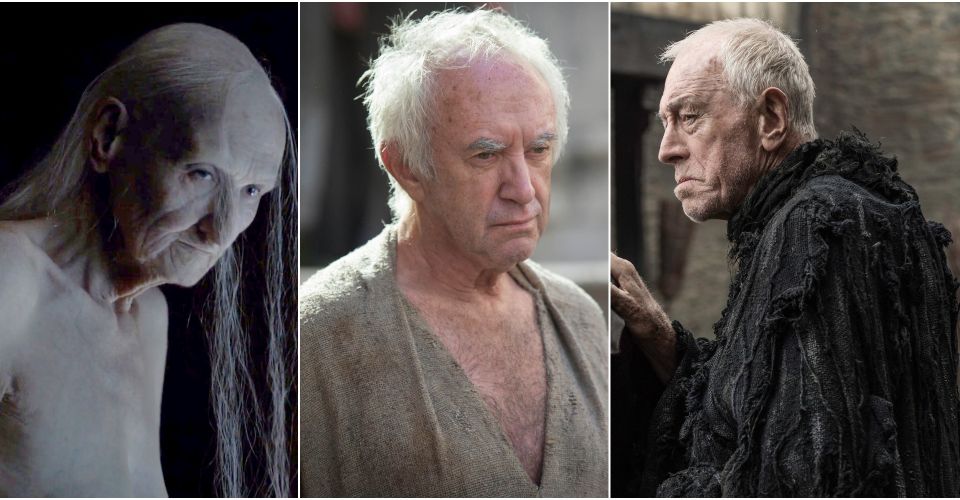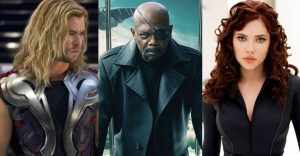Game Of Thrones: 5 Most Interesting Gods In The Show (& 5 That Make No Sense)

“What do we say to the God of Death?” While some people considered the Night King as just another villain, Melisandre considered him the real God of Death, which would suggest that she was asking Arya to finally apply what she had learned from Jaqen and Syrio Forel. Arya served the Many-Faced God, though, who was also the God of Death, which leaves the question; why did she kill the Night King then?
No one knew all the truth about the gods of Westeros, not even Melisandre. The gods were still an important part of everyday life both in Westeros and beyond, but some of the gods just didn’t make any sense. From a god that enjoyed life at the bottom of the sea waiting for his followers to drown and join him in a feast to one that prayed for those about to die, it is hard to tell which god was the safest to worship in Game of Thrones.
10 Interesting: The Lord Of Light

The Lord of Light was the most active deity in Game of Thrones, and his followers didn’t seem very willing to tolerate other gods. Melisandre was his priestess, using the powers she had to raise Jon Snow from the dead. She also used the same powers to kill Renly Baratheon with a shadow, though, making it hard to understand her lord’s morality.
The Lord of Light also brought Beric back from the dead many times allowing him to fight for the living in The Battle of Winterfell. The most interesting part of the Lord of Light is when he brought his flames to the Great Battle helping the Dothraki and lighting up the trenches. He also seemed to enjoy when poor people were burned at the stake though, Shireen Baratheon was his saddest victim.
9 Makes No Sense: The Drowned God

“What is dead may never die,” were the words used in honor of this god, who didn’t seem to care much about his people because they still died anyway. To become the king of the Iron Islands, you had to be drowned for some dangerously long time by the priest of the Drowned God, and you were to come out safe and sound.
It is not clear why he drowned in the first place, but his followers say that they will simply descend and dine with him and their other ancestors when they drown at sea. The problem with this faith is that when you drown your enemies, they become his sacrifices, meaning his servants may well be his sacrifices too! Theon Greyjoy didn’t meet him, though, as Sansa burned his body.
8 Interesting: The Seven

The Seven is also the faith of the Andals, referring to the Father, Mother, Maiden, Smith, Crone, Warrior, and Stranger, all charged with various roles over their followers. The Seven are also called the New Gods because the Andals came after the First Men, and their Gods were accepted in the south of Westeros since most people in the North believe in the Old Gods.
The Seven are a moderate religion, and the followers get to choose how to serve them, although the High Sparrow created a cult out of it when he was made the High Septon. It is a very liberal faith, highly modernized, and easily manipulated by lukewarm believers. The New Gods didn’t seem interested in answering prayers, though.
7 Makes No Sense: The Many-Faced God

The Many-Faced God is also The God of Death, although that is subject to many questions since the faith didn’t seem to like The Night King. The god works through the faceless men and is always keen on revenge. The worshipers are mostly assassins and don’t seem keen on becoming a dominant religion like the others.
According to Jaqen, you had to become no one before you could serve the Many-Faced God, but Arya beat that logic when she retained her name and still used the knowledge to kill Walder Frey. The knowledge allows the Faceless men to become the person whose face they wear, which is hard to understand. Like how did Arya become Walder Frey and somehow know everything the old Fray would do?
6 Interesting: The Weeping Woman

This was the prime deity of the city of Lys, in Essos, who allegedly weeps for those who are alive but just about to die. She doesn’t do anything to help nor save them, though. Jaqen said that The Weeping Woman was simply one facet of the Many-Faced God, although her compassion sounds nothing like the cruel character of the Faceless Men.
She was never seen in action in the show, although her statue was in the House of Black and White. In the statue, she weeps into a bowl, and her tears seem to overflow. If she is a god so concerned about the living, shouldn’t she be more concerned about saving them rather than just cry?
5 Makes No Sense: The Old Gods

When Brienne of Tarth took the oath to protect Catelyn Stark and her children, she swore by the Old Gods and The New. That is because the Old Gods, worshipped by the Children of the Forest before the arrival of the First Men, were powerful, although they had no temples. These gods didn’t even have names; they just manifested themselves on rocks, trees, and in the streams.
They were accepted by the First Men, hence worshipped by the Starks and believed to be manifested through Greenseers such as Bran Stark, who can perceive the past and probably the future. These gods don’t seem to work so much for those who worship them though. They left the Children of the Forest to be killed to extinction and just stood by and watched as the Night King nearly killed everyone.
4 Interesting: Great Stallion

The Dothraki were not very keen on religion, although everything in their world could be credited to The Great Stallion or Horse God. They believed that he resides in the skies and that the stars are his clans of their ancestors whose bodies have been burned. Everything the Dothraki get comes from this stallion, including children.
Their main belief was that there was a prophesied Khal that would mount the world and unite all the Dothraki to conquer the world. They believed Drogo would be that person and later, Daenerys, but they were disappointed in both cases.
3 Makes No Sense: The Black Goat Of Qohor

Jaqen H’ghar was not one of the best characters in Game of Thrones, but he understood the gods of Essos and the other free cities better than everyone else. He said that the Black Goat was the perceived protector of the free city of Qohor. The Goat demanded blood sacrifices every day and wouldn’t mind a condemned criminal as a gift on a holy day.
The Goat would then demand something bigger if the city wanted to avert a crisis, like a noble child. Did the Goat work? Well, no one knows, “but the city still stands” according to Jaqen. Maybe the goat protected Qohor, but was all that blood really necessary?
2 Interesting: The Great Shepherd

The Dothraki did not dismiss the existence of other gods; they just didn’t believe the others were as strong as The Great Stallion. One of the gods they perceived as weak was The Great Shepherd, the god of the Lhazareen shepherded tribe south of the Dothrak Sea in the fields of Lhazar.
This was a good deity who believes that all men are part of a single flock, and therefore all of them should be treated fairly. The priestesses would provide medical care to anyone, even soldiers of a conquering army.
1 Makes No Sense: The Great Other

Melisandre first mentioned this deity to Shireen as the opposite of the Lord of Light. According to Thoros, the Lord of Light is the heart of fire while the Great Other is the Soul of Ice. Thoros described the Great Other as the “God of Night and Terror,” suggesting that it may have been the Night King.
This god’s name cannot be mentioned, though. So, if the Lord of light is so powerful, why were his priest and priestess too afraid to even mention his nemesis’ name?
About The Author

















